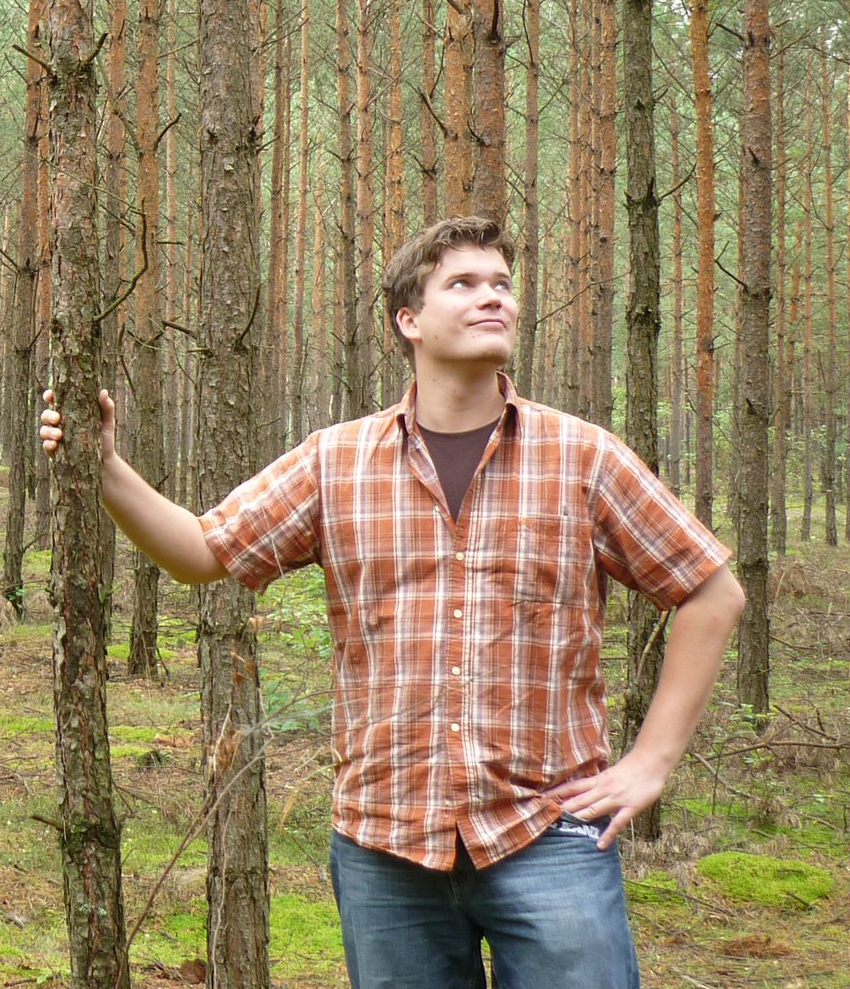
Wissenschaftlicher Mitarbeiter
Inhaltsverzeichnis
Curriculum Vitae
| June 2012 | Bachelor of Science (Biology) in Göttingen, titled “Analysing prey of Lithobius species using molecular gut content Analysis” |
| September 2014 | Master of Science (Biology) in Mainz, titled “The role of frass sharing in the early development and pathogen defense of the European earwig” |
| Since October 2014 | PhD-Student at the Department of Evolutionary Biology, Mainz. Preliminary thesis title “Importance of social immune systems on the early evolution of social life” |
Forschungsinteressen
Research interests
I am primarily interested in the impact of social and individual immunity on the early evolution of social life. While advantageous to survival and fitness, living in groups also has intrinsic costs such as increased risk of pathogen and parasite transmission due to the higher density of and frequent contact between individuals. Therefore, sociality can only evolve and persist if group living species develop effective strategies to lower the costs of parasitism and disease. In addition to individual immune systems, groups can effectively work together to decrease the overall risk of infection or combat the spread of invading parasites. These mechanisms are commonly referred to as social immunity. While well described in derived social systems such as eusocial insects, it remains unclear whether social immunity has evolved as a result of emerging sociality, or whether it in fact promoted the early evolution of social life. To investigate the relevance of social immunity in the evolution of sociality, it is essential to understand its role in species that exhibit early stages of social life, such as facultative family systems. Family interactions aimed at increasing resistance to pathogen and parasites are well documented in mammals and birds, and eusocial insect societies. The occurrence, nature and importance of social immunity in non-eusocial insect families, however, remains largely unknown.
PhD-Project
In the course of my three-year PhD-project, I will conduct a number of experiments to improve our understanding of the role of social immunity in the early evolutionary stages of sociality using the European earwig Forficula auricularia as a model organism. Specifically, I aim to investigate the occurrence of social immunity through pre- and post-hatching maternal care by analyzing changes in maternal behavior during family life and before egg-laying. I will assess whether mother-offspring interactions increase the offspring’s resistance to infection and/or help the offspring to fight infections by enhancing their immune response (resilience). Finally, I will investigate the influence of social immunity on the expression of genes involved in individual immunity and trans-generational priming, a key process in individual immunity.
Ultimately, this project will assess the impact of social immunity in early evolutionary forms of sociality, providing key insights to a mechanism which may have been essential in promoting emergence of family life in insects.
Publikationen
Van Meyel, S., Körner, M., Meunier, J. 2018. Social immunity: why we should study its nature, evolution and functions across all social systems. Current Opinion in Insect Science, 28, 1-7
Körner M., Foitzik S., Meunier J. 2018. Extended winters entail long-term costs for insect offspring reared in an overwinter burrow. Journal of Thermal Biology, 74: 116-122.
Körner M, Vogelweith F, Foitzik S, Meunier J. 2017. Condition-dependent trade-off between weapon size and immunity in males of the European Earwig. Scientific Reports, 7 (1): 7988.
Kramer J, Körner M, Diehl J, Scheiner C, Yüksel-Dadak A, Christl T, Kohlmeier P, Meunier J. 2017. When earwig mothers do not care to share: parent-offspring competition and the evolution of family life. Functional Ecology, 31: 2098-2107.
Vogelweith F, Körner M, Foitzik S und Meunier J. 2017. Age, pathogen exposure, but not maternal care shape offspring immunity in an insect with facultative family life. BMC Evolutionary Biology, 17: 69.
Körner M, Diehl JMC and Meunier J. 2016. Growing up with feces: benefits of allo-coprophagy in families of the European earwig. Behavioral Ecology, 27: 1775-1781.
Diehl J, Körner M, Pietsch M and Meunier J (2015). Feces production as a form of social immunity in an insect with facultative maternal care. BMC Evolutionary Biology,15, 40
Eitzinger B, Micic A, Körner M, Traugott M, Scheu S (2013) Unveiling soil food web links: New PCR assays for detection of prey DNA in the gut of soil arthropod predators. Soil Biology and Biochemistry, 57, 943-945
